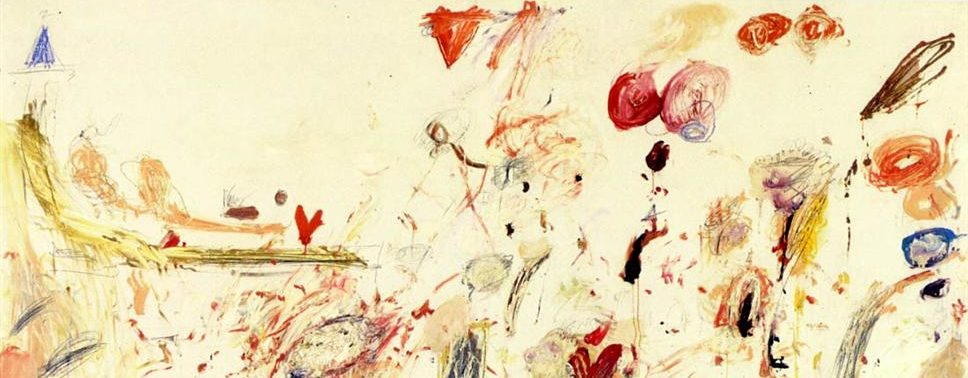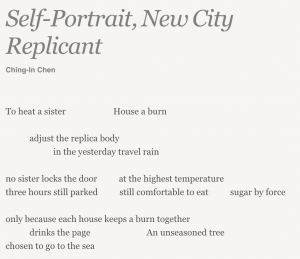
“Self-Portrait, New City Replicant” by Ching-In Chen (Nov. 1 Poem-a-Day) is like a piece of work where Marlene NourbeSe Philip and Gertrude Stein collaborated on. It follows unconventional grammar and syntax structure that makes it difficult for readers to interpret the poem without deeper analysis, much like the poems by Philip and Stein. More specifically, Chen’s poem reminds me of the poems in Zong! by Marlene NourbeSe Philip visually. The structures of the poem are similar because both poems utilise enjambment and don’t follow a specific meter, and there are no coherent sentences in either works. Both poems have words scattered around the page with large spaces in between the words, and they don’t link up to create proper sentences. However, there are some differences between the poems. For example, the poem by Ching-In Chen is slightly more cohesive because there are phrases scattered around the page, while the poems in Zong! can have words, letters, or phrases scattered around the page, which looks messier and even more disconnected.
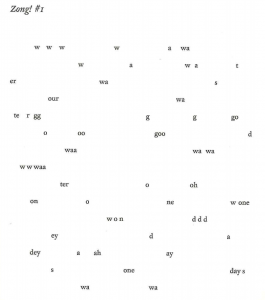
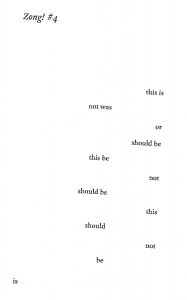
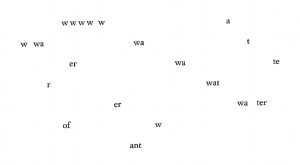
“Self-Portrait, New City Replicant” also reminds me of Gertrude Stein’s Tender Buttons because of the way the poet writes the phrases. Although some of them make sense, there are a few that are rather unorthodox. For example, “adjust the replica body”, drinks the page” and “in the yesterday travel rain” sound like phrases that Stein would write because of the way the phrases are formed. They don’t follow the normal sentence structures and they don’t make sense as a phrase. In addition, Chen writes about different and unrelated things throughout the poem, like Stein does. For example, he talks about heating a sister in the beginning, being comfortable to eat in the middle and an unseasoned tree at the end. None of these sentences go together, like the poems in Tender Buttons. Just to show a comparison, Stein would write things like “boom in boom in, butter”, “wood a supply” and “it is a need that state butter” to describe butter.

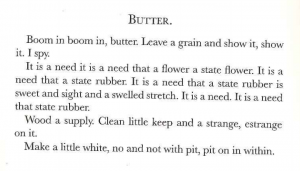
Poems like these have always made me wonder what poetry is defined as. There are always a few questions that come along with these unconventional poems: how do the poets even come up with these kinds of phrases? How are we supposed to make sense of them? Why do they write like that and what are they actually trying to convey? As a student without a real talent in poetry, it makes me think that I could write random sentences and become a successful poet because people can interpret my random sentences their own way and assume that it is what I intended to express through the poem. However, I’m sure that there is a much more complicated and meticulous process that goes on behind the poem, which I would love to learn about through personally interacting with the poet.
